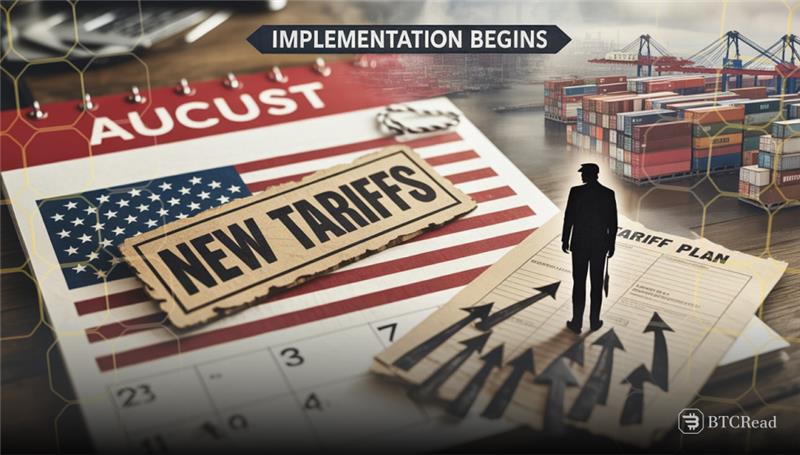President Donald Trump’s new list of tariffs will take effect August 1, 2025, after it was announced by U.S. Commerce Secretary Howard Lutnick. This provides America’s trading partners with a very short grace period, which otherwise had July 9 as the deadline for negotiations in case it wanted to avoid raised import taxes.
Trump made plans this past week to begin notifying nations this week and will attempt to finalize some of the deals before the deadline. All new tariffs will enter into force on the same day, Howard Lutnick has assured, putting paid to prior uncertainty about when they would become effective.
Trump initially announced the basic 10pc tariff level in April, with additional levies as high as 50pc. In the majority of instances, however, he reserved most increases until July 9, which allowed countries virtually a three-week window in which to close deals.
The White House wants to conclude negotiations with 18 major trading partners that represent 95 percent of America’s trade deficit.
Treasury Secretary Scott Bessent says President Trump will send formal notices to over 100 small countries that have made little progress in negotiations. If these countries do not act immediately, the administration will roll back their tariffs to the original levels announced on April 2.
Trump’s tariff strategy pressures global partners
Senior United States officials believe that negotiators in the European Union have greatly progressed and will soon ink major trade deals.
Bessent said that Trump’s government remains upbeat about signing pacts with countries like India, which can finalize a mini-trade deal in the next couple of days. Indian export duties into the United States will probably reduce and stay at an average of 10 percent.
Trade representatives noted that some nations, concerned about 36 percent levels of tariffs, have emerged with major concessions. Thailand, for example, has assured America greater access to its marketplaces and greater imports of American products, including energy and aircraft.
Council of Economic Advisers chairman Stephen Miran said that this can push back deadlines for tariffs with nations that are hard bargaining.
Deals struck with Britain and Vietnam have served as templates for future accords. Trump administration officials believe their policy is bringing production back to the United States, and they describe their Vietnam agreement as extremely favorable to the United States, especially for reducing tariffs on U.S. export goods.







